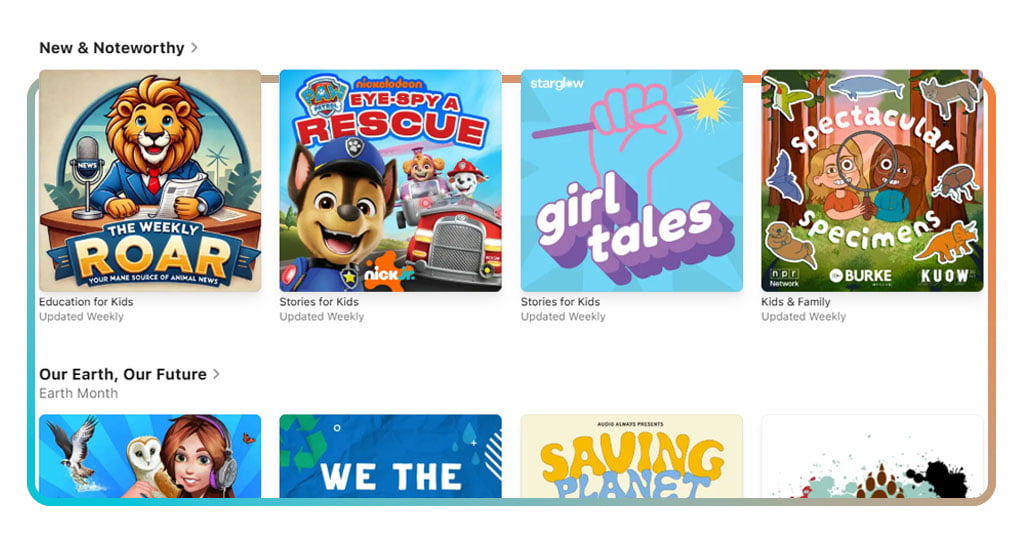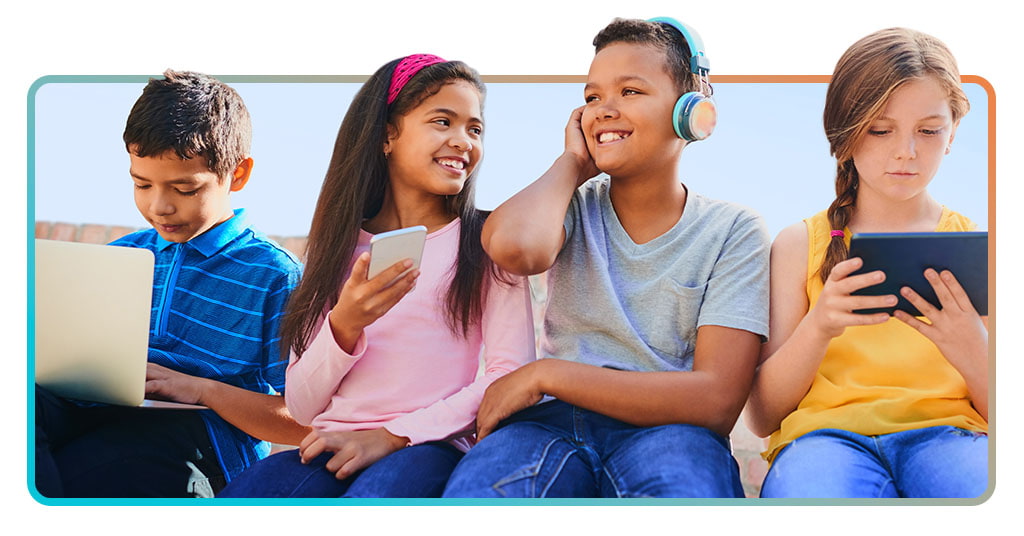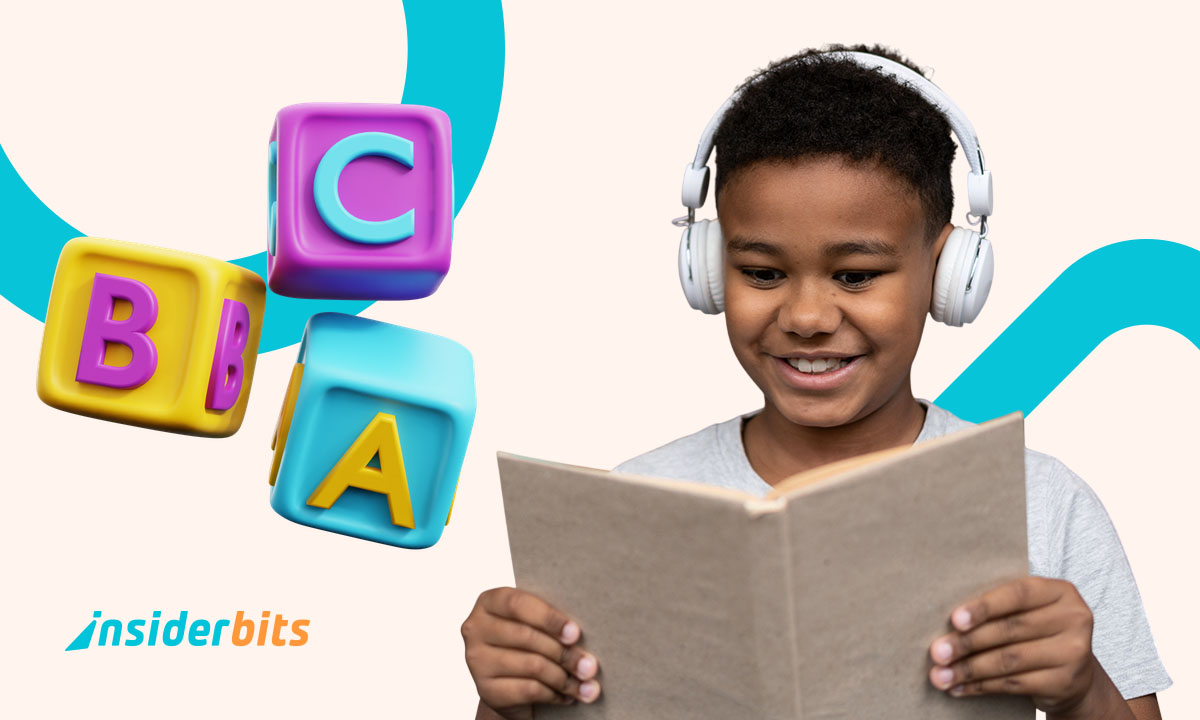In our increasingly digital world, parents and educators are constantly searching for effective, screen-free ways to help children develop essential literacy skills.
Enter learn-to-read podcasts—the innovative solution that’s transforming storytime into a powerful educational experience.
Unlike traditional methods that often feel like work, these audio adventures make learning to read feel like play, capturing children’s imaginations while secretly building crucial reading foundations.
This comprehensive guide will take you through:
- The neuroscience behind why audio learning accelerates literacy;
- How podcasts enhance vocabulary 3x faster than flashcards;
- 7 hand-picked podcasts for every age and reading level;
- Advanced strategies to maximize learning benefits;
- The surprising social-emotional perks of podcast listening;
- How to integrate podcasts with other learning tools.
The Science Behind Learn-to-Read Podcasts
Recent studies from Stanford’s Graduate School of Education reveal that auditory learning activates 60% more of the brain’s language centers than visual reading alone. When children listen to well-produced educational podcasts:
Cognitive Benefits
- Phonemic awareness improves by 40% compared to screen-based learning;
- Vocabulary acquisition happens 28% faster through contextual storytelling;
- Working memory strengthens as kids mentally “hold” story elements.
Neurological Advantages
MRI scans show podcast listening:
- Lights up both left and right brain hemispheres;
- Creates stronger connections between auditory and visual word processing areas;
- Enhances “mind’s eye” visualization skills critical for comprehension.
Real-World Impact: Teachers report podcast listeners
- Transition to chapter books earlier;
- Show better retention of story details;
- Demonstrate more creative story interpretations.

How Podcasts Build Vocabulary Like Magic
Ever been shocked when your first grader uses “extraordinary” correctly? You can thank podcasts. Here’s why they’re vocabulary powerhouses:
The 3-Part Learning System
When carefully selected, audio experiences create a rich learning ecosystem that combines contextual immersion, professional narration techniques, and specialized content—turning everyday listening into meaningful language growth.
The secret lies in how quality children’s podcasts naturally expose young learners to advanced vocabulary, proper pronunciation, and varied communication styles, all wrapped in engaging stories that kids genuinely enjoy.
Contextual Immersion
Shows like But Why: A Podcast for Curious Kids introduce advanced words through:
- Natural conversation flow;
- Multiple usage examples;
- Emotional context clues.
Professional Narration Techniques
Voice actors specialize in:
- Pacing: Slightly slower than normal speech;
- Enunciation: Crystal-clear pronunciation;
- Emotional tone: Helps convey meaning.
Specialized Content Areas—find podcasts targeting specific needs
When it comes to targeted literacy development through podcasts, different shows specialize in distinct skill areas to maximize learning impact.
For phonics fundamentals, Alphablocks Audio Adventures stands out by transforming letter-sound recognition into catchy musical segments that make phonetic patterns unforgettable.
Young listeners building sight word recognition will thrive with Story Pirates, where the unique hook of featuring stories actually written by children keeps engagement high while reinforcing high-frequency vocabulary.
Those looking to expand STEM terminology will find Brains On! particularly valuable, as it weaves scientific concepts into compelling narratives enhanced by real interviews with researchers and experts.
Meanwhile, Peace Out addresses emotional vocabulary through guided mindfulness stories that teach children to articulate feelings while developing self-regulation skills.
Each podcast has carefully crafted its format to turn specific literacy components into delightful audio experiences that children actively seek out, proving that focused skill-building doesn’t have to feel like work when delivered through the right medium.
Pro tip: create a “Word Treasure Hunt” where kids earn points for spotting podcast words in real life.
Why Children Become Podcast Superfans
The secret isn’t just educational value—it’s brilliant child psychology:
The Big Kid Factor
Listening to “their shows” makes children feel:
- Independent (no parent hovering);
- Sophisticated (real content, not baby talk);
- Part of an exclusive club.
Interactive Gold
The best learn-to-read podcasts include:
- Pause-and-predict moments;
- Audience participation segments;
- Bonus online activities;
- Real kid voices and ideas.
Star Power
Celebrity narrators like:
- Jack Black (Story Pirates);
- Kristen Bell (Million Bazillion);
- Lin-Manuel Miranda (Ear Snacks);
…make listening feel like VIP entertainment.
Parent perk: many include witty asides that keep adults entertained too.
The Ultimate Learn-to-Read Podcast Guide
We’ve scouted the podcast universe to find the shows that get this magic formula right—the ones kids beg to hear while secretly building crucial reading skills.
For Pre-Readers (Ages 3-5)
Podcast: Little Stories Everywhere
- Why? 7-minute stories perfect for short attention spans;
- Skills: Rhyming, repetition, basic phonics;
- Best For: Bedtime or morning routines;
- Where: Spotify Kids.
For Beginning Readers (Ages 6-8)
Podcast: The Two Princes
- Why? Adventure series with clear dialogue;
- Skills: following plot sequences, character voices;
- Best for: car rides;
- Where: Podcast Apple.

Advanced Listening Strategies
Transform passive listening into active learning with these techniques:
The Book-Podcast-Book Sandwich
- Read a physical book;
- Listen to related podcast;
- Re-read book with new insights.
Create a Listening Journal
Include:
- Drawings of imagined scenes;
- New vocabulary words;
- Ratings for each episode.
Play “Director”
After listening, have kids:
- Cast family members as characters;
- Design costumes/sets based on audio descriptions;
- Act out favorite scenes.
Safety & Quality Evaluation
Green Flags
- PBS or NPR affiliation;
- Clear educational objectives;
- Regular episode schedule.
Red Flags
- Overly commercial content;
- Inconsistent audio quality;
- No content warnings for sensitive topics.
Expert tip: preview 3 episodes before introducing to your child.
The Future of Literacy Education
With 72% of elementary teachers now using podcasts in classrooms (PBS 2023 survey), audio storytelling is proving to be:
- More inclusive for different learning styles;
- Easier to integrate into daily routines;
- More affordable than many literacy programs.
Start tonight: try Circle Round—folktales with ethical lessons, perfect for family listening.
P.S. Combine podcasts with our top-rated app di lettura for a complete 21st-century learning toolkit.





